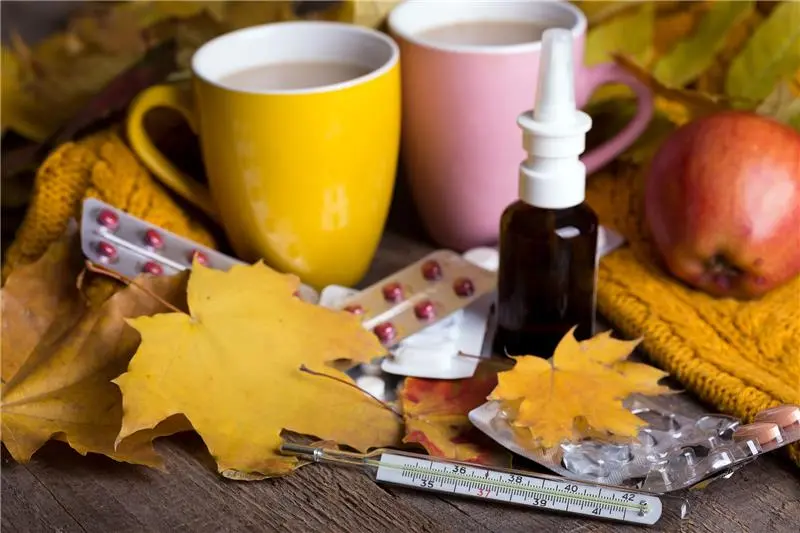When it comes to medication, many people believe that it makes no difference when they take their pills or capsules. Some medications, however, must be taken before, with, or after food in order to maximise their effectiveness or minimise unwanted effects. In this article, we'll look at why some medications must be taken with food, how food can alter medication absorption and metabolism, and why it's critical to follow the directions on your medication label for safe and effective treatment.
Why do Some Medications have to be Taken With Food?
Some drugs must be taken with meals to avoid irritation or harm to the stomach lining. When taken on an empty stomach, certain medications, such as nonsteroidal anti-inflammatory drugs (NSAIDs) like ibuprofen, can produce gastrointestinal adverse effects such as stomach ulcers and bleeding. By buffering stomach acid and decreasing direct exposure of the stomach lining to the medicine, taking these medications with food can help lessen the chance of these adverse effects.
Other drugs must be taken with meals in order to be absorbed or bioavailable. Some antibiotics, such as amoxicillin, are better absorbed when taken with food, particularly a fatty meal. The fat in the meal can aid in the absorption and efficiency of the drug.
Food's Influence on Medication Absorption and Metabolism?
Our diets can have a big impact on how our systems absorb and metabolise drugs. Certain meals can interfere with medicine absorption, metabolism, or effectiveness. Grapefruit juice, for example, can decrease the function of a liver enzyme responsible for metabolising many drugs, resulting in higher levels of the drug in the bloodstream and an increased risk of side effects.
Some meals, on the other hand, can improve medicine absorption or effectiveness. Some cholesterol-lowering drugs, such as statins, are better absorbed when taken with food, particularly a fatty meal. This can help the drug work better and decrease cholesterol levels more effectively.
Observing Medication Directions
Given the numerous factors that might influence medicine absorption and effectiveness, it is critical to carefully follow the instructions on your medication label. The label will normally state whether the drug should be taken before, with, or after food, and it may also provide extra directions for safe and effective administration.
It's also a good idea to tell your doctor if you have any dietary restrictions or if you're taking any supplements or over-the-counter medications, as they can interfere with prescription medications' absorption or effectiveness.
Furthermore, you should never modify the dosage or frequency of your medicine without first visiting your healthcare professional. Changing your medication's dosage or timing might have major repercussions, including unpleasant effects or decreased effectiveness.
Food and Medication Scheduling
In addition to deciding whether or not to take medication with meals, the timing of when you eat can alter the medication's effectiveness. Certain thyroid drugs, for example, should be taken on an empty stomach, preferably 30 minutes to an hour before breakfast, because food can interfere with their absorption. Similarly, to assist regulate blood sugar levels, certain diabetes drugs should be taken before meals.
It is crucial to remember that the timing of medication and food varies from person to person and may be influenced by personal factors such as age, weight, and medical history. As consequence, it's always a good idea to talk to your physician or chemist regarding the most appropriate moment to take the medication in connection with your meals.
The Value of Consistency
Consistency is another crucial element to consider when taking medication with food. Taking medication with food at the same time every day helps to promote uniform absorption and reduces the risk of side effects. Taking medication with food infrequently can cause changes in blood levels of the medication, reducing its effectiveness.
The Bottom Line
Finally, whether drugs are taken with or without food can have a substantial impact on their effectiveness and adverse effects. Some medications must be taken with food in order to protect the stomach lining or increase absorption, whilst others must be taken on an empty stomach in order to avoid interfering with absorption.
It is critical that you carefully follow the instructions on your medicine label and inform your healthcare practitioner if you have any dietary restrictions or are using any other medications or supplements. By adhering to these rules, you can assure safe and effective treatment while reducing the chance of side effects.



%20(1).jpg)


.webp)


%20(1).png)
.png)
%20(1).png)


%20(1).png)




%201.png)
